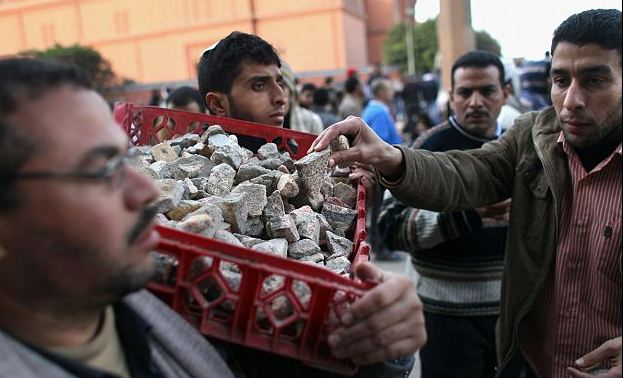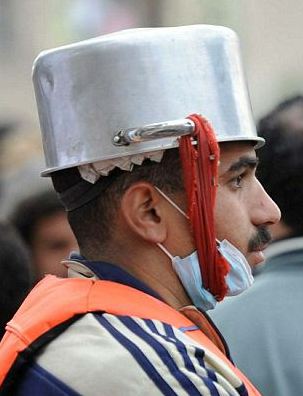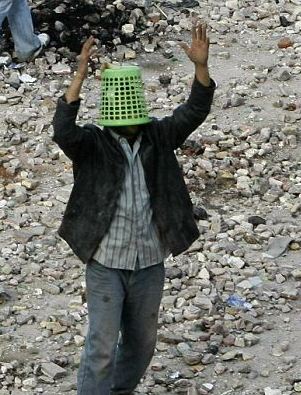Nor can a culture. We all just have to accept one another and learn from one another.
Yes. Lovely. Except that accepting this lovely idea means ignoring virtually the whole of world history.
Andrew McCarthy at the NRO notes a particularly egregious example of sharia in practice – a fourteen year old girl who had been raped by a forty year old neighbour was sentenced to 100 lashes for illicit sexual activity, but died after 80 lashes.

14 Year Old Hena Begum Died After Receiving 80 Lashes for Having Been Raped
Andrew notes:
When I catalogue the horrors of sharia, I frequently hear in response that I am oversimplifying it, that I am relying on incorrect interpretations (oddly said to be inaccurate because they construe Islamic doctrine “too literally”), or that I fail to appreciate the richness and nuances of sharia jurisprudence that have made it possible for moderate Muslims to evolve away from the law’s harshness. Some even claim sharia is not a concrete body of law, just a set of aspirational guidelines — as if Sakineh Ashtiani, the woman sentenced by an Iranian court to death by stoning, will merely be having advice, rather than rocks, thrown at her …
These criticisms miss the point … It should by now be undeniable that there is an interpretation of sharia that affirms all its atrocious elements, and that this interpretation is not a fringe construction. It is mainstream and backed by very influential scholars who know a hell of a lot more about Islam than we in the West do. That makes it extremely unlikely that this interpretation will be marginalized any time soon. There is no agreed-upon hierarchical authority in Islam that can authoritatively pronounce that various beliefs and practices are heretical. The closest thing Muslims have is the faculty at al-Azhar University in Egypt, and it is a big part of the problem. Whether this fundamentalist interpretation is accepted by only 20 or 30 percent of Muslims — or whether, as I believe, the percentage is higher, perhaps much higher — that still makes it the belief system of almost half a billion people worldwide. That’s not a fringe.
No it’s not. And, pretending it is means we are blind to the likely outcome of elections in Egypt – another hardline islamist state – and to the infuence of that outcome on the rest of the Middle East.
Daniel Greenfield at Sultan Knish makes the same point, but better:
59 percent of Egyptian Muslims want democracy and 95 percent want Islam to play a large part in politics. 84 percent believe apostates should face the death penalty. That is what Egyptian democracy will look like. A unanimous majority that wants an Islamic state and a bare majority that wants democracy. Which one do you think will win out? A democratic majority of the country supports murdering people in the name of Islam. Mubarak’s government does not execute apostates or adulterers. But a democratic Egypt will. Why? Because it’s the will of the people.
The cheerleaders shaking their pom poms for Egyptian democracy don’t seem to grasp that the outcome could be anything other than positive …
We fought to free Korea and Vietnam from Communism, but we lacked one basic thing. Ground level support from the people we were fighting to protect. Today South Koreans like Kim Jong Il more than they like us. We fought to free the tyrants of Kuwait and Saudi Arabia from Saddam Hussein. As a reward, they financed the terrorists who have been killing us ever since. We fought to free Iraq from Saddam, and the entire country imploded into armed camps. Our “Victory in Iraq” came about because we cut a deal with the Baathists against the Shiites and Al Qaeda, essentially restoring a broken version of Saddam’s old status quo. We fought to liberate Afghanistan, and now we find ourselves allied with some Muslim warlords who abuse women and rape little boys– against the other Muslim warlords who abuse women and rape little boys.
Handing out democracy like candy does not fix existing cultural problems. It does not end bigotry, free women or stop murder in the name of Allah. Open elections are only as good as the people participating in them. And the 84 percent of Egyptians who want to murder apostates have issues that democracy will not solve. The problem with Egypt is not Mubarak– but the Egyptians.
Let’s take another example. In Jordan, the next target on the freedom tour, King Hussein passed a bill to criminalize the honor killings of women. And their democratically elected parliament voted 60 to 25 to strike the bill down. It took them only 3 minutes. That’s what democracy would mean for the Jordanian girls murdered by their husbands, brothers and fathers. The right of the people and their duly elected representatives to legalize the murder of women …
Egypt’s period of greatest liberalization was under British rule. Since then its cosmopolitan nightspots have been torched and it has drifted closer to Islamization. Even Egypt’s current level of human rights under Mubarak is above that of most of its neighbors. And the reason for that is Mubarak’s ties to America. The more democratic Egypt becomes, the more its civil rights will diminish. Its rulers will see social issues as an easy way to compromise with the Muslim Brotherhood. As Egypt’s cultural ties to the West diminish, so will its freedoms …
A people who do not believe in the right to life, liberty and the pursuit of happiness will not be free no matter how many times they go to the polls. You can place voting booths outside every home and run elections every week, and it will still do no good. Freedom may be the birthright of every man, woman and child on earth– but it cannot be theirs until they claim it. As long as they believe in the right of the majority to oppress the minority, in the value of order over liberty, and the supremacy of the mosque over any and all civil and legal rights– then they will never be free. Never. Their elections will either give rise to chaos or tyranny. That is how it is in the Middle East. That is how it will always be until they claim their birthright by closing the Koran and opening their minds.









